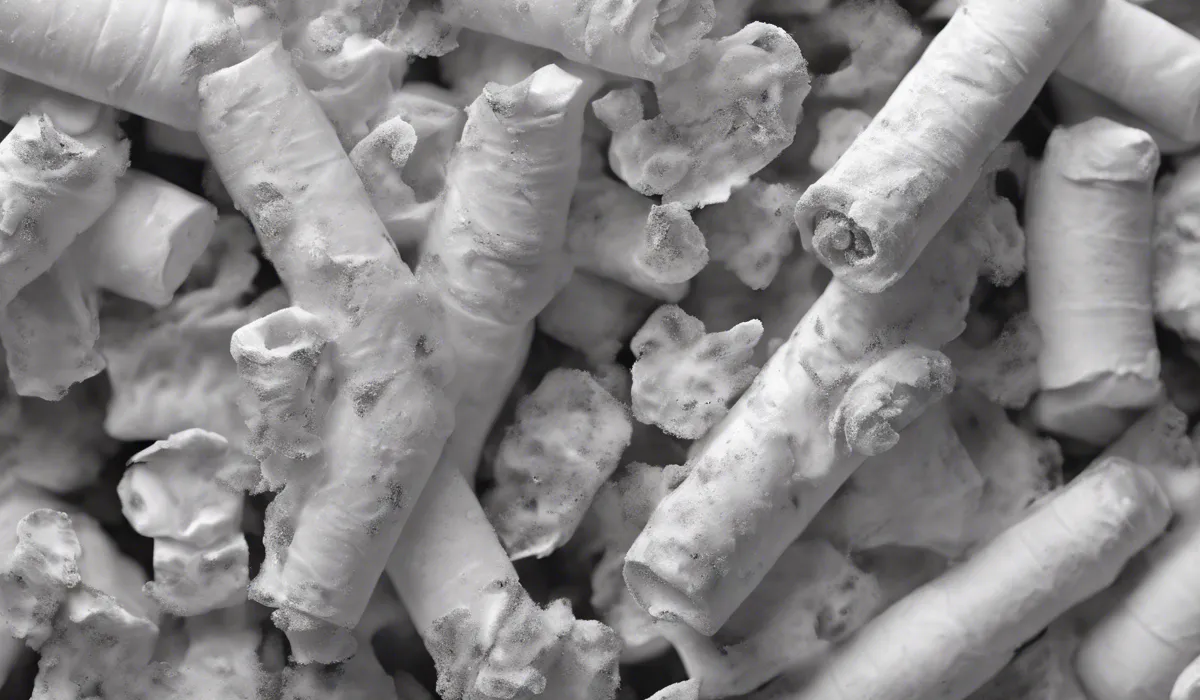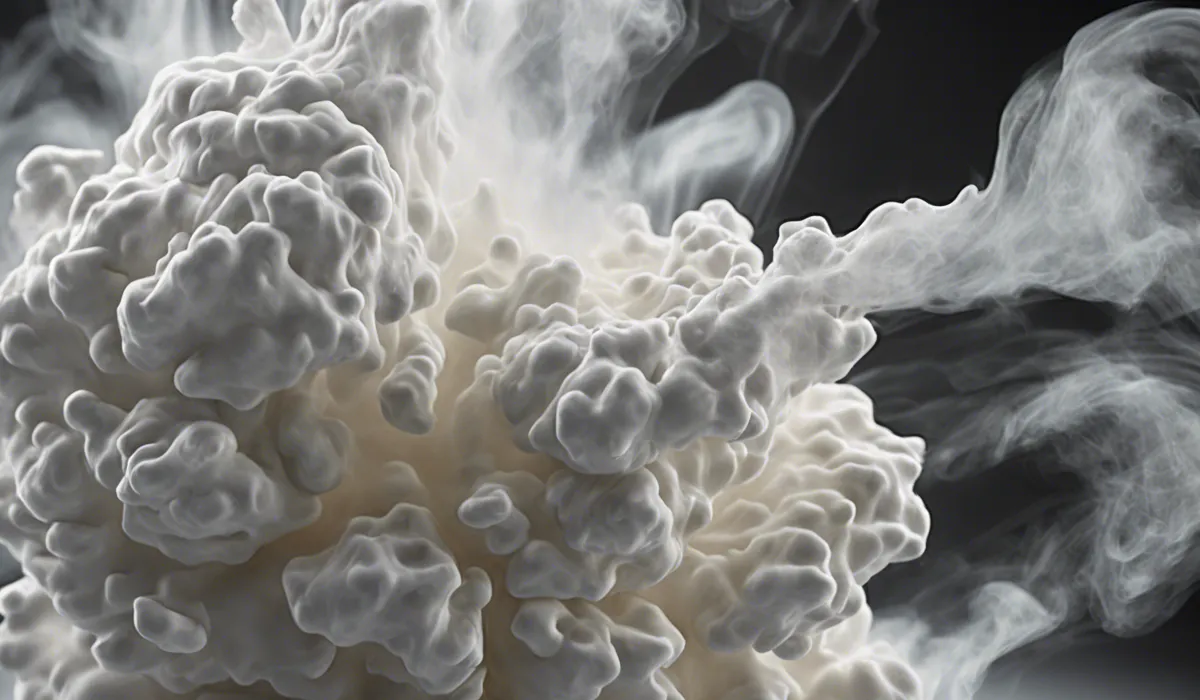Yes, mold can emit an odor that some may describe as similar to cigarette smoke. This occurs due to the volatile organic compounds (VOCs) produced by mold, which can vary in scent. If you notice a smoke-like smell without a clear source, consider a mold inspection.
Understanding Mold and Its Various Odors

Brief Overview of Mold and Its Common Types
Mold is a type of fungus that can be found both indoors and outdoors. It thrives in warm, damp, and humid conditions, and reproduces by releasing spores into the air.
Common types of indoor mold include Cladosporium, Penicillium, Alternaria, and Aspergillus. Each type of mold has its unique characteristics and can affect the health of those exposed to it.
How Mold Produces Odors?
Mold produces odors through the release of volatile organic compounds (VOCs) as it grows.
These VOCs are gases that can easily evaporate into the air at room temperature, carrying the scent of the mold with them. The smell is often described as musty or earthy, which is a telltale sign of mold presence.
Factors Affecting Mold Scent
The scent of mold can be influenced by various factors, including the type of material it grows on, the stage of growth, and the specific species of mold.
Additionally, environmental conditions such as humidity and temperature can alter the intensity and character of the mold odor.
Comparison of Mold Smells with Other Common Household Odors
Mold odors can sometimes be confused with other household smells. For instance, a musty odor can be similar to the smell of old books, dampness, or even pet odors.
However, it is distinct in its persistence and tends to worsen over time, unlike transient smells that dissipate more quickly.
Can Mold Smell Like Cigarette Smoke?

Instances and Conditions Where Mold May Mimic the Smell of Cigarette Smoke
There are instances when mold can emit an odor that is similar to cigarette smoke. This is particularly true for certain species of mold that produce stronger, more acrid-smelling VOCs.
These odors can be especially noticeable in closed spaces or areas with poor ventilation.
Testimonies and Studies Regarding Mold and Similar Odors
Some homeowners have reported a smoke-like smell in their homes, which, after investigation, was attributed to mold growth.
Studies have also examined the range of odors produced by mold and have acknowledged that musty odors can vary widely, with some being described as similar to burning materials.
Science Behind the Confusion in Scent Identification
The human sense of smell can sometimes struggle to accurately identify and differentiate between complex scents. This is due to the fact that our olfactory system interprets a vast array of chemical compounds.
When mold produces VOCs that have similar chemical structures to those found in cigarette smoke, it can lead to confusion in scent identification.
Addressing Mold Regardless of Its Scent

Steps to Identify and Confirm the Presence of Mold
To confirm the presence of mold, start by visually inspecting your home for signs of growth, which can appear as black, green, or white spots on surfaces.
Pay attention to musty odors, which are a strong indicator of hidden mold. Use a mold test kit or consider hiring a professional for a thorough assessment.
Importance of Professional Assessment and Remediation
Professional assessment is crucial for correctly identifying and effectively removing mold.
Experts in mold remediation can determine the extent of the infestation and recommend the best course of action. They have the tools and experience necessary to safely and thoroughly address the issue.
Preventative Measures to Avoid Mold Growth
Preventing mold growth involves controlling moisture levels in your home, fixing leaks, ensuring proper ventilation, and using dehumidifiers in damp areas.
Regular cleaning and maintenance can also keep mold at bay. It’s important to address any water damage quickly to prevent mold from taking hold.
Health Risks Associated with Mold Exposure and the Importance of Timely Action
Exposure to mold can lead to health issues such as respiratory problems, allergies, and in severe cases, toxic effects due to mycotoxins produced by certain molds.
Taking timely action to address mold can mitigate these health risks, ensuring a safe and healthy living environment.
FAQs About Mold Smelling Like Cigarette Smoke
Can mold in your home smell like cigarette smoke?
Yes, mold can produce a smell that is sometimes compared to cigarette smoke due to the VOCs it emits.
What causes mold to emit a smoke-like odor?
Mold emits smoke-like odors because of the volatile organic compounds (VOCs) that it releases as it grows.
Is it common for mold to smell like cigarette smoke?
While not the most common odor for mold, some types of mold can produce a smell that is reminiscent of cigarette smoke.
What should I do if I smell a smoke-like odor but don’t smoke?
If you notice a smoke-like smell without an apparent source, it is advisable to get a mold inspection to determine if mold is the cause.
Can the smell of mold be harmful to health?
The VOCs that cause the smoke-like odor from mold can be irritating to some individuals and may have health effects, so it is important to address mold issues promptly.
Final Thoughts
Mold can produce odors reminiscent of cigarette smoke due to the volatile organic compounds it emits.
These scents vary, but when a smoke-like smell is present without an obvious source, it’s advisable to consider a professional mold inspection to determine the cause and address any potential mold issues.
